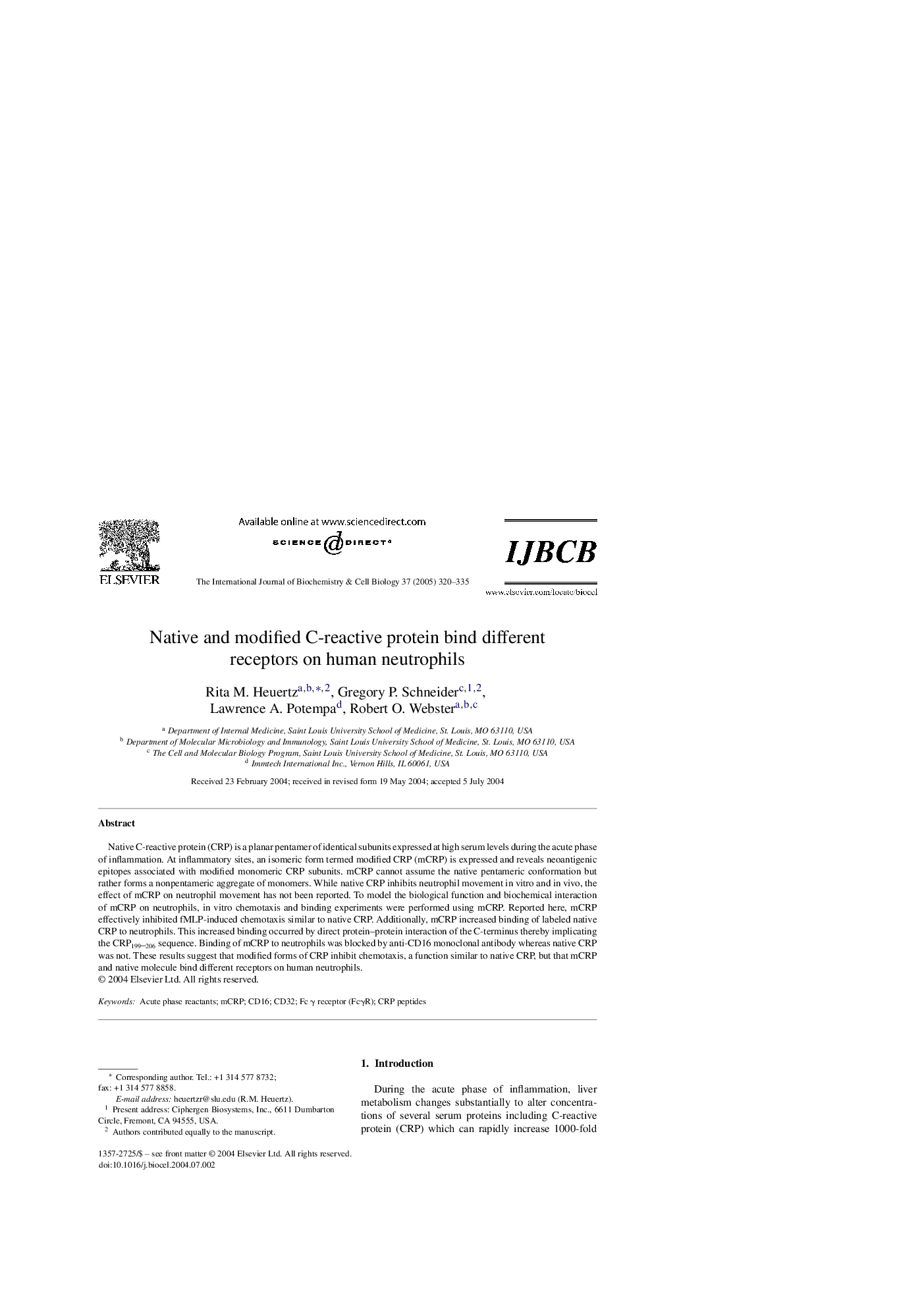| Article ID | Journal | Published Year | Pages | File Type |
|---|---|---|---|---|
| 9890101 | The International Journal of Biochemistry & Cell Biology | 2005 | 16 Pages |
Abstract
Native C-reactive protein (CRP) is a planar pentamer of identical subunits expressed at high serum levels during the acute phase of inflammation. At inflammatory sites, an isomeric form termed modified CRP (mCRP) is expressed and reveals neoantigenic epitopes associated with modified monomeric CRP subunits. mCRP cannot assume the native pentameric conformation but rather forms a nonpentameric aggregate of monomers. While native CRP inhibits neutrophil movement in vitro and in vivo, the effect of mCRP on neutrophil movement has not been reported. To model the biological function and biochemical interaction of mCRP on neutrophils, in vitro chemotaxis and binding experiments were performed using mCRP. Reported here, mCRP effectively inhibited fMLP-induced chemotaxis similar to native CRP. Additionally, mCRP increased binding of labeled native CRP to neutrophils. This increased binding occurred by direct protein-protein interaction of the C-terminus thereby implicating the CRP199-206 sequence. Binding of mCRP to neutrophils was blocked by anti-CD16 monoclonal antibody whereas native CRP was not. These results suggest that modified forms of CRP inhibit chemotaxis, a function similar to native CRP, but that mCRP and native molecule bind different receptors on human neutrophils.
Keywords
Related Topics
Life Sciences
Biochemistry, Genetics and Molecular Biology
Biochemistry
Authors
Rita M. Heuertz, Gregory P. Schneider, Lawrence A. Potempa, Robert O. Webster,
